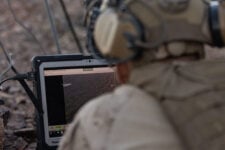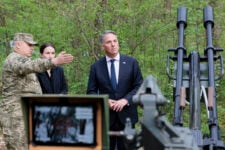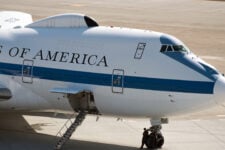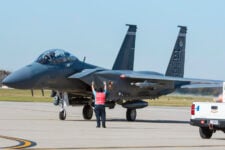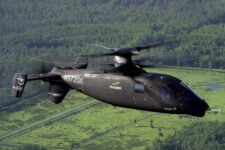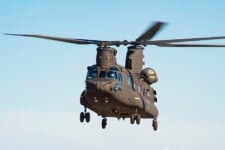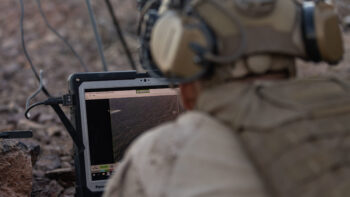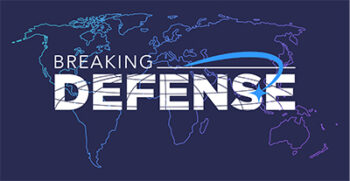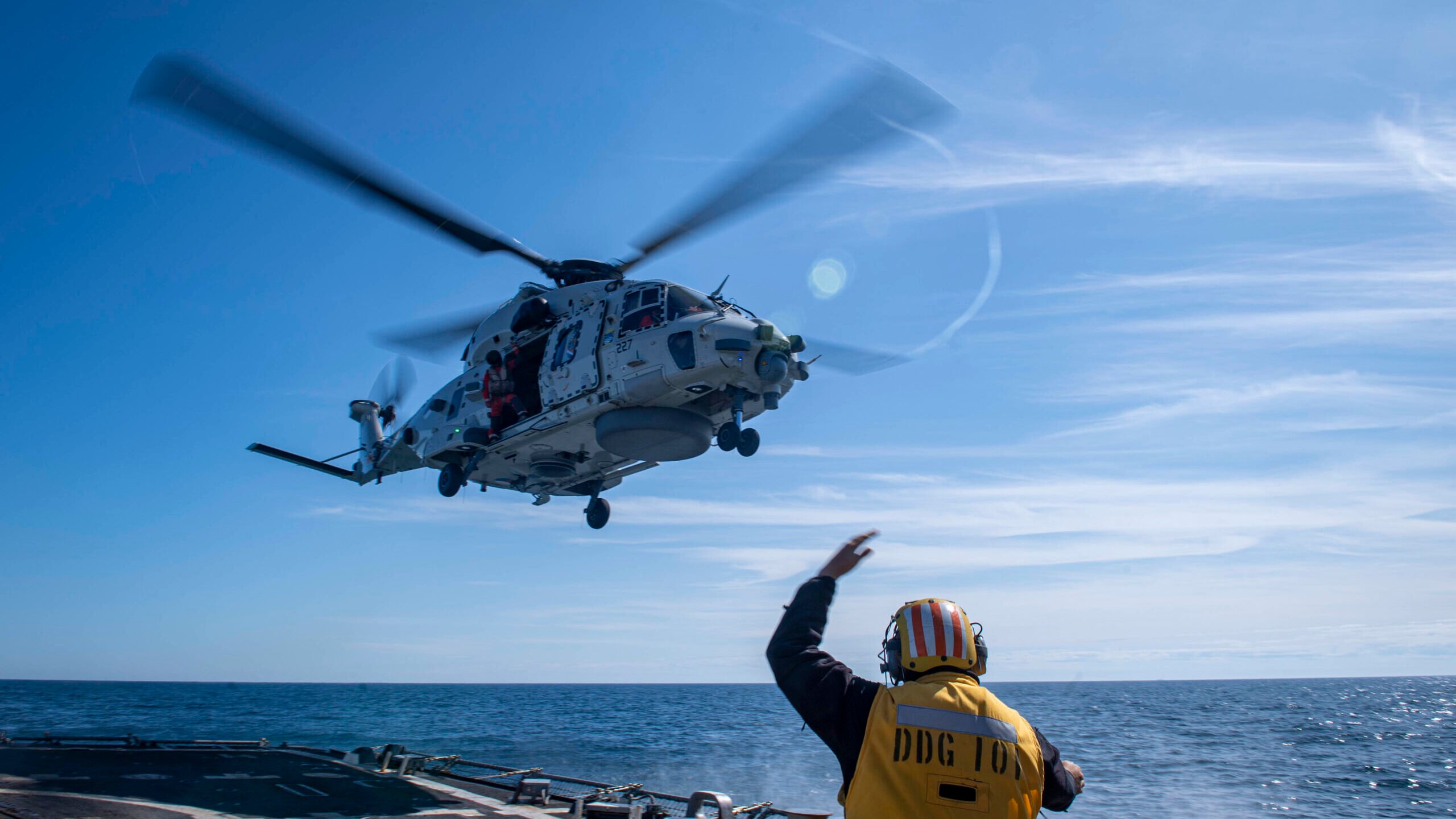
190916-N-UB406-0087
An NH90 helicopter from the Royal Netherlands navy frigate HNLMS Van Speijk (F 828) takes off from the flight deck of the guided-missile destroyer USS Gridley in 2019. (U.S. Navy photo by Mass Communication Specialist 2nd Class Cameron Stoner)
WASHINGTON: The US Army and the Netherland’s Ministry of Defence signed an agreement today to exchange information about future rotorcraft requirements and programs as both nations look to modernize their militaries.
The agreement is the second such effort the Army has signed with a European ally, following a February handshake between the Army and United Kingdom to ensure interoperability between future helicopter platforms.
“What it allows us to officially do [is] it allows us to talk concepts at sensitive levels. It allows us to talk requirements, and allows us to talk science and technology,” said Maj. Gen. Walter Rugen, director of the Future Vertical Lift Cross-Functional Team, during a roundtable with reporters. “It gives us those authorities so we don’t have to talk around subjects.”
The US and Dutch will “ensure interoperability” between their future helicopter programs under the agreement, which they called a “Future Rotorcraft Concept Analysis Project Arrangement.” The agreement, according to a press release, will allow the two to “assess the benefits, risks and overall feasibility of rotorcraft cooperation between the two allies.” The release also says the arrangement will “develop plans for cooperation in future phases” of the US’s Future Vertical Lift program.
A fact sheet from that Army notes that the two nations will collaborate on Army aviation’s modernization priorities, including the Future Long-Range Assault Aircraft and Future Attack Reconnaissance Aircraft.
Maj. Gen. Andre Steur, national capability director in the Dutch Defence Ministry, told reporters that the arrangement was an “important step.”
“One of the pitfalls from the past was that we were focusing too much on national requirements instead of alliance or coalition requirements,” Steur said.
The project will also work to identify opportunities to reduce program costs, schedule and performance risks in future helicopter programs.
Rugen said that general officers from the Army and Netherlands will meet semi-annually, while colonels and other action officers will meet “routinely.” The semi-annual meetings will drive the topics of collaboration, identify gaps and “reinforce” successes, Rugen said.
Air Commodore Robert Adang, commander of the Netherlands Helicopter Command, told reporters that the information exchanged between the two countries will create more “synergy” between allies.
“This will allow us to work on a daily basis with the US Army in developing the new ideas, new concepts that Future Vertical Lift will bring,” Adang said.
The Army has a similar agreement with the United Kingdom announced earlier this year. Under that agreement, called Future Vertical Lift Cooperative Program Feasibility Assessment, the US and UK are formally sharing information about future rotorcraft requirements and programs.
Rugen told reporters that the US-UK agreement, signed in February, recently produced its first draft report, exploring operational concepts for future rotorcraft and potential collaboration for helicopters from research to sustainment.
In June, six NATO countries, including the Netherlands and UK but not the US, announced a collaboration agreement to develop a new medium multi-role helicopter, aiming to replace current inventories by 2035. Right now, Steur said the the Dutch currently have AH-64 Apaches, CH-47 Chinooks, AS532 Cougar and NH-90 helicopters in its fleet. All those helicopters are going through upgrades, he said, except for the Cougar.
Doug Bush, assistant secretary of the army for acquisition, logistics and technology, hinted that the US Army is considering more partnerships with allies in the future.
“There are ideas about expanding the pool further, which we think could be hugely beneficial,” Bush said.
